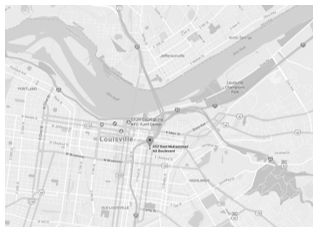Nursing faculty, students provide screenings, health education at National Farm Machinery Show
Led by faculty member Cheryl Dean-Witt, PhD, RN, assistant professor, in collaboration with the Kentucky Department of Agriculture and UofL Health - UofL Physician's Vascular Ultrasound Lab, the School of Nursing helped provide health screenings and education at the National Farm Machinery Show held in Louisville this February.
Witt, whose research focus is rural and Appalachian health, said their efforts at the event likely helped save lives.
The outreach to farmers, their families and other exhibitors, resulted in 134 screenings of carotid arteries, which detect plaque and stenosis in the carotids. Early detection can prevent stroke and/or death from the stroke.
Of those screened, 85 were placed into the low risk category, with a recommendation of routine follow-up with their physician; 47 were placed into the moderate risk category due to mild-moderate plaque and/or stenosis, with a recommendation to schedule a diagnostic carotid duplex within 6-12 months; and two were placed into the high risk category due to severe plaque and/or stenosis and were contacted for follow-up with one of the vascular surgeons.
UofL nursing students also provided health education. Over the four-day-event, 147 people were screened for hypertension and glucose levels, 99 men and 48 women. The participants also were asked if they saw a health care provider on an annual basis.
Of these, 61 percent of participants reported seeing a physician on at least and annual basis; however, there was a significant difference between genders (p= .006); 28 percent of the men reported they did note see a physician annually, compared to only eight percent of women reporting they had not seen a health care provider. Another significance noted between genders was related to blood pressure (p= .005). Of the men, 82 percent had elevated (or greater) blood pressure, compared to 30 percent of women.
